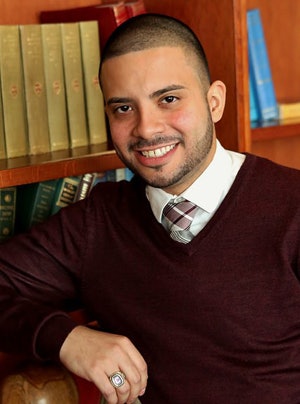One of the most surprising realizations I’ve had during my time in graduate school is how little attention is given to teaching doctoral students how to teach.
I’ve heard from many peers at conferences of the emphasis that is placed on published research rather than effective pedagogy. I am not saying that the opportunities are lacking, nor that there aren’t mechanisms in place to help a student become an effective teacher — however, it is simple to avoid teaching altogether if it is not tied to your funding or part of your curriculum.
While not every student intends to teach after completing a terminal degree, I would argue that it would be to all students’ benefit to learn how to help others learn effectively. Sure, there are structures in place for graduate students to have experiences being a TA for a course, teaching a course on their own and maybe even earning a teaching certificate; but how are these experiences evaluated? Is there any accountability to the student for improvement? Do they complete these teaching opportunities with confidence in their ability to construct and lead their own courses?
The onus is placed on the graduate student to value teaching and to seek critical peers and mentors to improve their teaching. Fortunately, I’ve had plenty of opportunities to TA my faculty adviser’s courses and teach my own course during my time in graduate school. As a TA, I was invited to co-construct syllabi, select which classes I would lead, and grade all assignments. The ability to see how my co-TAs and lead instructor graded students’ work helped me to recognize common mistakes in writing that I once ignored and helped me become more critical when reading the work of others.
 Andrew Martinez
Andrew MartinezHaving to teach my own class last summer helped me realize how important creating a syllabus was. I was provided several sample syllabi of the course and each syllabi had similar content, but the order and grouping of readings varied. Striving for sequential coherence, I formed a hybrid syllabus pulling readings from the syllabi provided as well as updated text in certain topic areas. Overall, the students in my class gave positive feedback on the course content and were pleased with the order in which we discussed different aspects of student affairs practice.
Teaching my own course and being a TA for two other courses has helped broaden my research interests and my ability to speak on topics that are not directly related to my line of inquiry. As a former student affairs administrator, I was excited to lean on my experiences to engage in thoughtful dialogue about the field and its direction. However, I was detached from the academic literature. This teaching experience required me to read more widely on student affairs and I was able to find published research that had ties to my interests of research surrounding low-income, first-generation students.
As a TA for a course on the history of American higher education, I’ve become more aware and critical of the evolution of our educational system and how its very beginnings have played a significant role in the conditions that impact the populations I am most interested in studying. While it may seem that doctoral students aim for depth of a specific topic in their discipline over breadth of their discipline, teaching allows for the opportunity to explore issues that may be on the margins of our thinking.
Teaching also provides a graduate student with frequent opportunities to practice public speaking. By having a consistent audience, I believe the instructor is prone to more critical and useful feedback since students would have witnessed their growth throughout the semester. For doctoral students who are interested in pursuing a career as faculty, these experiences are important as many faculty searches ask for the submission of teaching evaluations. Some teaching positions also require a teaching philosophy or teaching statement, which can be challenging for recent graduates who were not able to teach during their time in graduate school.
If graduate programs are not setting up structures within their curriculum to adequately prepare their doctoral students to teach, then they should at least highly encourage their students to seek out these opportunities. We need to reframe teaching as more than an opportunity to practice teaching for aspiring faculty and emphasize the many other skills that are developed by having these experiences.
Andrew Martinez is a Ph.D. student at the University of Pennsylvania’s Graduate School of Education and research associate at the Penn Center for Minority Serving Institutions. You can follow him on Twitter @Drewtle



















